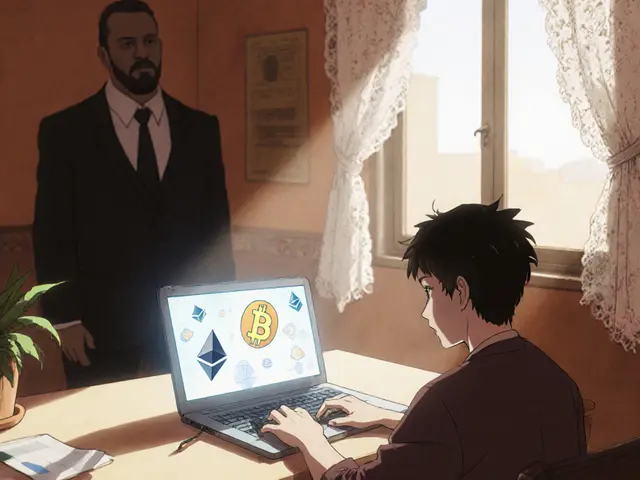Bank Account Freezing
Understanding bank account freezing can save you time and money. When working with Bank Account Freezing, the temporary or permanent lock of a personal or business bank account by a financial authority or institution. Also known as account seizure, it usually follows a legal trigger such as a court order, regulatory breach, or international sanction. In the crypto world, a freeze often shows up when a Crypto Exchange, a platform that lets users buy, sell, or store digital assets reports suspicious activity to its bank partners. KYC, Know‑Your‑Customer procedures that verify identity and source of funds is the primary tool banks use to decide whether to lock an account. If a user fails KYC, the bank may freeze the account to avoid money‑laundering risk. International Sanctions, government‑issued restrictions on persons, entities, or countries add another layer—OFAC or UN lists automatically flag accounts for freezing. The result is a chain: sanctions trigger compliance checks, compliance checks trigger KYC reviews, KYC failures trigger a freeze. This chain explains why many crypto traders hear about frozen bank accounts when they try to move large sums or use exchanges that operate in high‑risk regions.
How Sanctions, Exchanges, and VPNs Interact
Bank account freezing encompasses three moving parts: legal sanctions, exchange policies, and user‑level workarounds. A sanction from a body like OFAC influences the exchange’s decision to flag a user, and the exchange requires banks to run tighter KYC checks. When those checks stumble, the bank acts by freezing the account. Traders in restricted regions often turn to a VPN, a virtual private network that masks IP location and encrypts traffic to hide their true location from the exchange. While a VPN can dodge geo‑blocks, it does not hide the source of funds, and many exchanges now log VPN usage as a risk factor. In practice, using a VPN does not prevent a freeze if the underlying KYC or sanction issue remains unresolved. Instead, it may add another red flag that speeds up the freeze. This is why you’ll see articles about “VPNs and crypto trading in Iran” or “how exchanges detect proxy traffic” in the list below—those pieces dive deeper into the detection methods and survival tips.
All of this means the key to avoiding a frozen bank account is to stay compliant before you need a workaround. Make sure your KYC documents match the information on your bank statements, watch for any sanction‑related news about the country you’re trading from, and treat a VPN as a convenience, not a shield. Below you’ll find a curated set of posts that walk through real‑world examples, from VPN risks in Iran to exchange reviews that highlight fee structures and compliance scores. Whether you’re a casual trader or a professional investor, these guides give you the context you need to keep your money moving and your accounts open.
17
Bank Account Freezing for Crypto Activity: 2025 Guide
Learn why banks freeze accounts linked to crypto in 2025, how new U.S. and EU regulations work, and practical steps to avoid disruptions.
Latest Posts
Popular Posts
Tags
- decentralized exchange
- crypto exchange
- crypto exchange review
- cryptocurrency
- crypto airdrop 2025
- CoinMarketCap airdrop
- blockchain
- meme cryptocurrency
- GENIUS Act
- cryptocurrency compliance
- crypto airdrop
- meme coin
- crypto trading
- fake crypto exchange
- Solana meme coin
- cryptocurrency valuation
- Binance Smart Chain
- underground crypto Nepal
- crypto airdrop guide
- crypto staking




